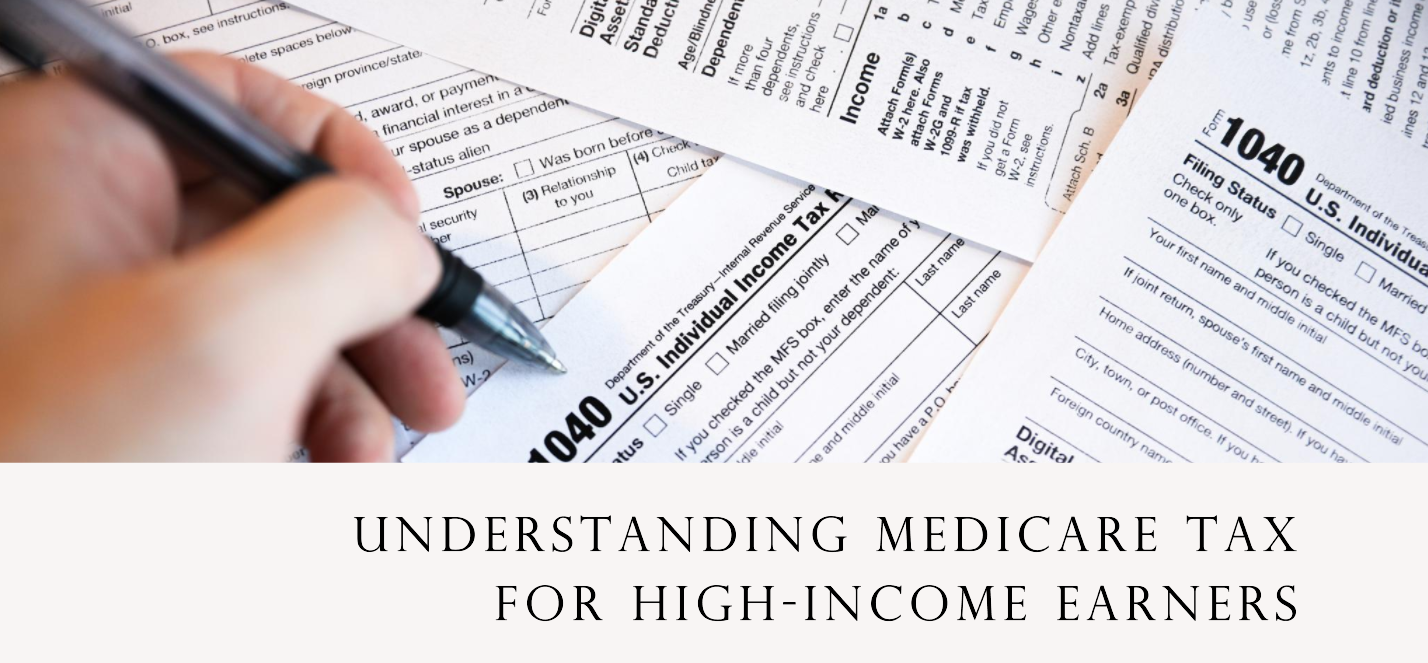Medicare is a vital healthcare program that provides coverage for millions of Americans aged 65 and older and certain younger individuals with disabilities. To fund this program, the government collects Medicare taxes from workers and employers. However, not all income is subject to Medicare tax, and high-income individuals often face additional Medicare taxes. This article will explore the intricacies of Medicare tax for high-income individuals, including the Additional Medicare Tax and the Net Investment Income Tax.
Medicare Tax Basics
Medicare tax is a payroll tax that pays part A of the Medicare program. Part A coverage pays up to 80% of hospital visits, hospice, nursing home, and some home healthcare. In 2023, the Medicare Tax rate is 2.9%, split between employers and employees. W2 employees pay 1.45% in Medicare tax from their paycheck and their employers pay the other 1.45%. Self-employed individuals pay the entire 2.9% tax since they are considered both employee & employer. An important note: Medicare tax, unlike Social Security tax, does not have income limits. All earned income, such as wages, tips, bonuses, commissions, and other types, are subject to Medicare tax.
Additional Medicare Tax: 2013 Affordable Care Act (ACA)
High-income earners may be subject to the two additional Medicare surtax introduced as part of the Affordable Care Act (ACA). This tax imposes an extra 0.9% on earned income above certain thresholds. For single filers, the threshold is $200,000, and for married couples filing jointly, it is $250,000. Here’s how it works:
Example 1: Single W2 individual with an income of $225,000
The first $200,000 of your income is subject to the standard 1.45% Medicare tax.
The excess income of $25,000 ($225,000-$200,000) is subject to 1.45% + 0.9% = 2.35% Medicare Tax.
Example 2: Married couple with income of $225,000
You are only subject to the standard Medicare tax rate of 1.45% since you are under the threshold.
* Note: For self-employed individuals, the 0.9% only applies to the employee portion of your income. There is no employer portion.
It’s essential to note that your employer typically withholds the Additional Medicare Tax if your wages surpass the threshold. However, you might be responsible for ensuring you’ve paid the correct amount if you have multiple jobs or self-employment income.
Net Investment Income Tax (NIIT)
In addition to the Additional Medicare Tax, high-income individuals may be subject to the Net Investment Income Tax (NIIT). The NIIT is a 3.8% tax imposed on certain investment income for individuals with modified adjusted gross incomes (MAGI) above specific thresholds:
- Single filers: $200,000
- Married couples filing jointly: $250,000
- Married individuals filing separately: $125,000
Investment income subject to the NIIT includes interest, dividends, capital gains, rental income, and passive income from businesses in which you don’t materially participate.
Example 1: Single Individual with earned income of $190,000 + $45,000 in Net Investment Income.
Total MAGI is $235,000, resulting in NIIT. The taxable portion is $35,000 ($235,000 – $200,000 limit)
Example 2: Single Individual with earned income of $300,000 + $45,000 in Net Investment Income
Total MAGI is $345,000, resulting in NITT. The taxable portion is $45,000 (only the Net Income is subject to the tax).
Conclusion
Medicare tax plays a crucial role in funding the Medicare program, ensuring millions of Americans have access to essential healthcare services. High-income individuals may face additional Medicare taxes in the form of the Additional Medicare Tax and the Net Investment Income Tax. Understanding these tax obligations is essential for accurate financial planning and tax compliance. If you fall into the high-income category, consider consulting a financial advisor for federal employees to navigate the complexities of these taxes and make informed decisions about your financial future.
Reach Out to Us!
If you have additional federal benefit questions, contact our team of CERTIFIED FINANCIAL PLANNER™ (CFP®), Chartered Federal Employee Benefits Consultants (ChFEBC℠), and Accredited Investment Fiduciary (AIF®). At PlanWell, we focus on retirement planning for federal employees. Learn more about our process designed for the career federal employee.
Preparing for federal retirement? Check out our scheduled federal retirement workshops. Sign up for our no-cost federal retirement webinars through our webinar page. Make sure to plan ahead and reserve your seat for our FERS webinar, held every three weeks. Want to have PlanWell host a federal retirement seminar for your agency? Reach out, and we’ll collaborate with HR to arrange an on-site FERS seminar.
Want to fast-track your federal retirement plan? Skip the FERS webinar and start a one-on-one conversation with a ChFEBC today. You can schedule a one-on-one meeting on our contact page.
Reference:
https://www.irs.gov/taxtopics/tc559
https://www.irs.gov/newsroom/questions-and-answers-on-the-net-investment-income-tax










